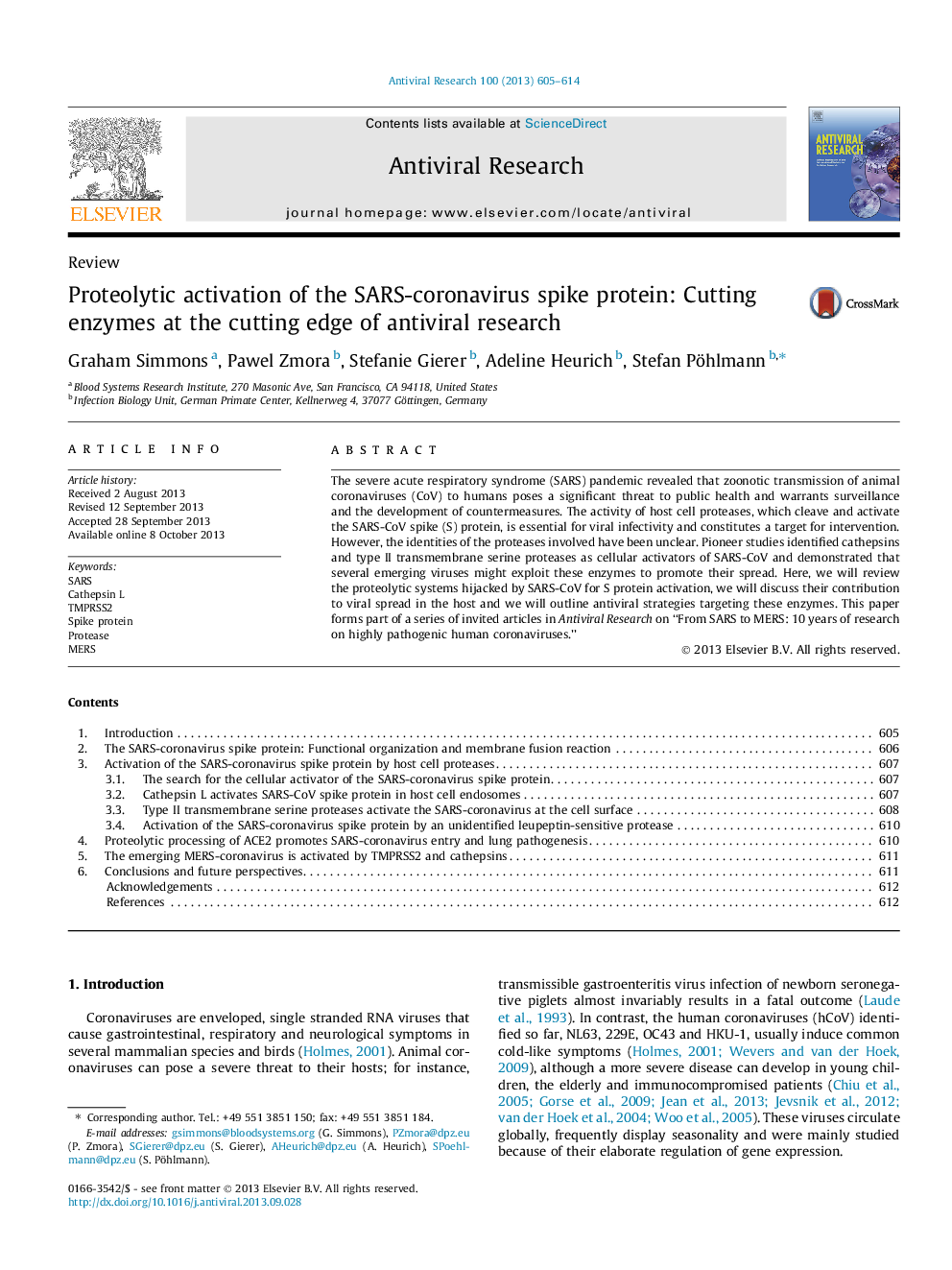| Article ID | Journal | Published Year | Pages | File Type |
|---|---|---|---|---|
| 5822291 | Antiviral Research | 2013 | 10 Pages |
Abstract
The severe acute respiratory syndrome (SARS) pandemic revealed that zoonotic transmission of animal coronaviruses (CoV) to humans poses a significant threat to public health and warrants surveillance and the development of countermeasures. The activity of host cell proteases, which cleave and activate the SARS-CoV spike (S) protein, is essential for viral infectivity and constitutes a target for intervention. However, the identities of the proteases involved have been unclear. Pioneer studies identified cathepsins and type II transmembrane serine proteases as cellular activators of SARS-CoV and demonstrated that several emerging viruses might exploit these enzymes to promote their spread. Here, we will review the proteolytic systems hijacked by SARS-CoV for S protein activation, we will discuss their contribution to viral spread in the host and we will outline antiviral strategies targeting these enzymes. This paper forms part of a series of invited articles in Antiviral Research on “From SARS to MERS: 10Â years of research on highly pathogenic human coronaviruses.''
Related Topics
Life Sciences
Immunology and Microbiology
Virology
Authors
Graham Simmons, Pawel Zmora, Stefanie Gierer, Adeline Heurich, Stefan Pöhlmann,
